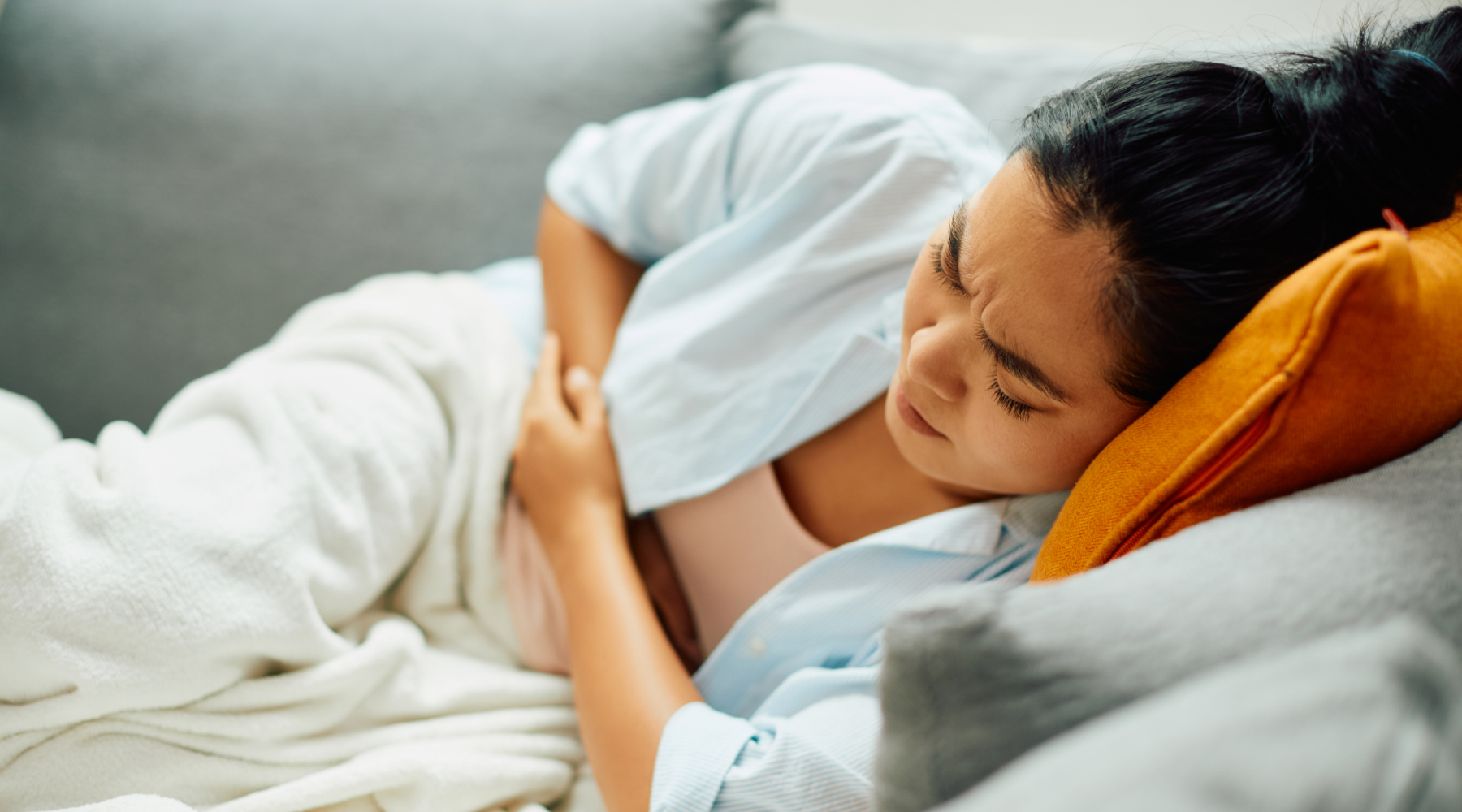Understanding Endometriosis: Symptoms, Myths, and Support

Endometriosis affects one in ten menstruating individuals worldwide, yet it remains one of the most misunderstood conditions in women’s health. With its complex symptoms and a myriad of misconceptions, navigating endometriosis can feel overwhelming for those who experience it. At Alea, we believe in fostering open, transparent, and informed conversations about menstruation and the health challenges that come with it. In this article, we’ll dive deep into the symptoms, dispel myths, and explore ways to find support for managing this condition, all while empowering you to embrace sustainable care options for your menstrual health.
What is Endometriosis?
Endometriosis is a chronic condition where tissue similar to the lining of the uterus, called endometrium, grows outside of the uterus. Common sites for endometriosis include the ovaries, fallopian tubes, or the tissue lining the pelvic region. In rare cases, this tissue can even spread beyond the pelvic area. The displaced tissue responds to hormonal changes just as normal uterine lining does, causing inflammation, pain, and in some cases, the formation of scar tissue or adhesions.
Key Facts About Endometriosis:
- It affects approximately 10% of menstruating individuals worldwide.
- The condition is most often diagnosed in individuals in their 20s and 30s, but symptoms can appear at any age post-puberty.
- Endometriosis can negatively impact fertility in some cases but does not always lead to infertility.
Recognizing the Symptoms
Endometriosis symptoms can vary significantly from person to person, often making diagnosis difficult. While some individuals may experience debilitating pain, others may have mild or no symptoms despite an advanced stage of the condition. Below are some of the most commonly reported symptoms:
- Chronic pelvic pain or pain during your period (dysmenorrhea).
- Pain during or after sexual intercourse.
- Excessive menstrual bleeding (menorrhagia) or irregular periods.
- Fatigue, bloating, and nausea, particularly during menstruation.
- Painful bowel movements or urination during menstruation.
- Infertility or difficulty conceiving.
Remember, experiencing one or more of these symptoms does not necessarily mean you have endometriosis. It’s critical to work with a healthcare provider for proper evaluation and diagnosis.
Dispelling Myths About Endometriosis
Despite growing awareness around endometriosis, myths and misconceptions abound. Let’s tackle some of the most common ones:
Myth 1: Endometriosis is Just "Bad Cramps"
Many dismiss the pain of endometriosis as severe menstrual cramps, but the reality is far more complicated. Pain associated with endometriosis can often feel unrelenting, persisting long beyond your period and sometimes affecting everyday activities.
Myth 2: Pregnancy Cures Endometriosis
Although pregnancy can suppress symptoms for some individuals due to hormonal changes, it is not a cure for endometriosis. Symptoms often return after pregnancy, sometimes with greater intensity.
Myth 3: There’s a Cure
Unfortunately, there is currently no cure for endometriosis, though treatments like hormonal therapy, surgery, and lifestyle adjustments can help manage symptoms.
Managing Endometriosis: Finding Comfort, Support, and Sustainable Options
While medical interventions such as surgery or hormonal treatments are commonly prescribed, addressing endometriosis often involves a multifaceted approach. Here are ways to manage the condition effectively while aligning with Alea’s commitment to sustainability and self-care:
1. Personalized Pain Management
Work with your healthcare provider to create a pain management plan. This may involve medications, over-the-counter solutions, or physical therapies that target inflammation and pain.
2. Lifestyle Adjustments
Regular exercise, stress management, and anti-inflammatory diets can aid in overall symptom management. Additionally, adopting sustainable menstrual care products, like those offered by Alea, can provide an added sense of control and comfort.
3. Holistic Therapies
Acupuncture, yoga, and mindfulness practices are growing in popularity as complementary therapies for pain relief and emotional wellness. These options align well with the holistic wellness values of eco-conscious individuals.
4. Sustainable Self-Care
Considering how endometriosis may lengthen or intensify periods, using eco-friendly and chemical-free products like Alea’s organic pads and biodegradable tampons can help support both your body and the environment. With customizable bundles for light to heavy flow (including options such as "alea heavy" and "cotton tampons"), menstrual care can be tailored to your unique needs.
5. Connecting with Supportive Communities
Endometriosis can feel isolating, but you don’t have to manage it alone. Consider joining online or local support groups to connect with others who understand your experience. Organizations dedicated to endometriosis advocacy frequently provide educational resources and platforms for shared experiences.
How Alea Supports Guilt-Free Health Choices
At Alea, we understand the importance of transparency and sustainability in menstrual care—values that align with the needs of individuals managing chronic conditions like endometriosis. Our range of biodegradable, plastic-free pads, tampons, and liners crafted from GOTS-certified organic cotton ensures comfort without compromising the planet. Additionally, with Alea’s commitment to fighting period poverty, your choice of menstrual products contributes to meaningful social impact.
Get Informed. Stay Empowered.
Managing endometriosis is about more than just coping; it’s about finding ways to thrive. By embracing awareness, combating myths, and seeking eco-friendly, supportive care, you can take meaningful strides toward reclaiming control over your health. Explore Alea’s sustainable menstrual care collection, from organic pads bundles to light flow tampons, and experience guilt-free periods tailored to your comfort and values.
Looking for safe, gentle menstrual care? Explore our range of organic pads, tampons, and liners designed with your health in mind.